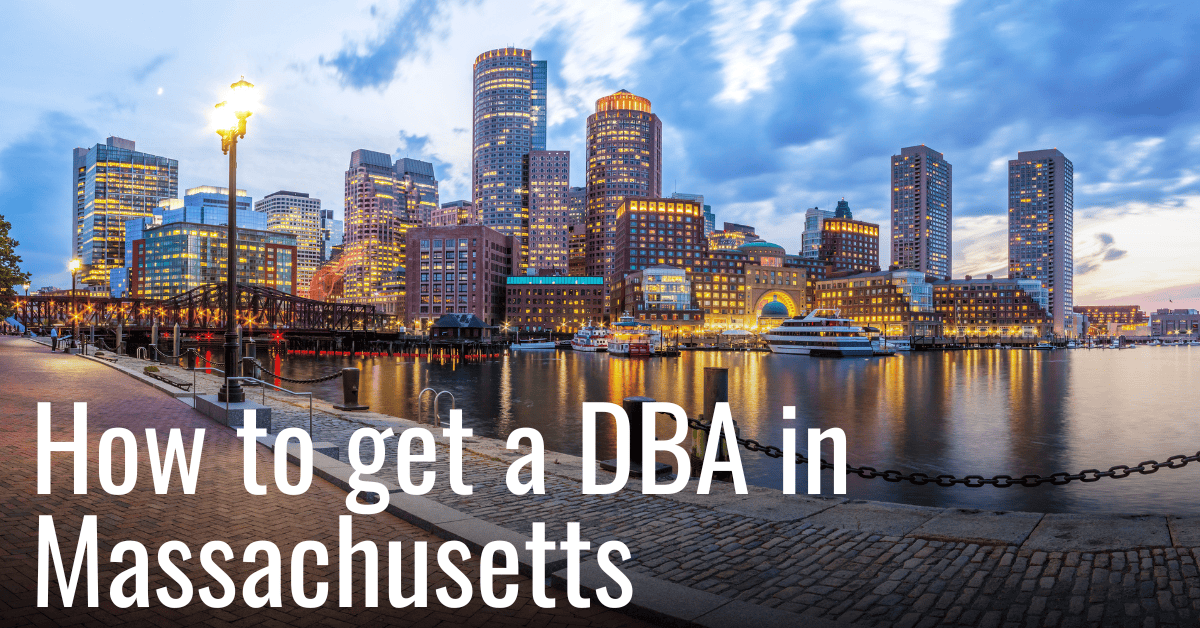Closing a business is never simple, but Michigan’s process for dissolving an LLC is pretty clear. The state lays out steps to help you wind down your company while protecting yourself from headaches down the road.
To dissolve an LLC in Michigan, you need to vote to dissolve, file a Certificate of Dissolution, request a tax clearance certificate within 60 days, and take care of all business affairs properly.
Some business owners put off dissolving inactive LLCs, not realizing that can mean more annual filings and surprise fees. The Certificate of Dissolution goes to the Michigan Department of Licensing and Regulatory Affairs. You’ll also need to confirm all state taxes are paid through the tax clearance process.
Key Takeaways
- LLC dissolution needs formal approval from members and official paperwork filed with Michigan’s Department of Licensing and Regulatory Affairs.
- Request a tax clearance certificate within 60 days of filing the Certificate of Dissolution to verify all state taxes are paid.
- Winding up means settling debts, distributing assets, and letting creditors know—otherwise, you could run into liability problems later.
Save the Hassle and Get Bizzee to Do It For You
As you can see, there is considerable work in doing a dissolution and in the interests of ensuring it is done correctly, many people use a service like Bizee to do the dissolution. It is quick, easy and comparatively cheap.
Get Bizee to dissolve your LLC for you
- Low fees
- Hassle free instant dissolution of your LLC
- Peace of mind
Preparing to Dissolve an LLC in Michigan
Before you can officially dissolve your Michigan LLC, you’ve got to take care of a few crucial things. These steps keep you in the clear legally and help avoid messy surprises later.
Reviewing Legal Requirements
Michigan law spells out what you need to do to dissolve an LLC. First, see if you need to get tax clearance from the Department of Treasury before you file anything. That clearance proves you’ve paid all state taxes.
You’ll have to file a Certificate of Dissolution form CSCL/CD-731 with the Department of Licensing and Regulatory Affairs (LARA). Fill this out carefully to avoid delays.
Figure out if your dissolution is voluntary or involuntary. Voluntary means the members want to close up shop, while involuntary dissolutions happen because of a court order or administrative action.
Evaluating Operating Agreement Provisions
Your LLC’s operating agreement might have rules for dissolving the company. Look for:
- How many members need to agree (majority, supermajority, or unanimous)
- Required notice periods before meetings
- What documentation you need for the vote
If there’s no operating agreement, Michigan law usually requires a majority vote. Formal meeting minutes should record the decision, with signatures from everyone present.
Document the vote carefully—who was there, how they voted, and the result. If there’s ever a dispute, you’ll want this record.
Settling Outstanding Debts and Obligations
Before you file dissolution papers, you need to handle all financial obligations. Make a list of:
- All creditors and what you owe them
- Contracts that need to be canceled
- Employee obligations, like final paychecks and benefits
- Federal, state, and local tax liabilities
Michigan law says you must notify all creditors about the dissolution in writing. Include contact info for claims.
Set aside enough money to pay your debts. Only distribute leftover assets to members after paying creditors. If you skip this, you could end up personally liable.
Filing the Michigan LLC Dissolution Documents
To legally end your business, you’ll need to file the right documents. Michigan has specific requirements for paperwork, how you submit it, and the fees involved.
Completing Certificate of Dissolution
To dissolve your LLC, file a Certificate of Dissolution (CSCL/CD-731) with the state. The form asks for:
- Your LLC’s exact legal name
- Date you filed the original Articles of Organization
- Why you’re dissolving
- Signatures from authorized representatives
State whether the dissolution happened by member vote or as the operating agreement says. An authorized individual—usually a member or manager—needs to sign.
Double-check everything before you send it in. Mistakes can slow things down. Make sure you’ve wrapped up all business matters first.
Submitting Documentation to the Michigan Department of Licensing and Regulatory Affairs
You’ve got two main ways to submit your dissolution paperwork:
- Online through the Corporations Online Filing System (COFS)
- Mail to the Department of Licensing and Regulatory Affairs
Online, you’ll set up a COFS account, fill out the form, and pay with a card. It’s usually faster this way.
If you mail it, send the completed certificate and payment to the address on the form. Toss in a cover letter with your contact info in case they have questions.
Sometimes you’ll need a tax clearance certificate from the Department of Treasury, especially if you might owe taxes. This proves you’re squared up with the state.
Handling Filing Fees and Processing Times
The filing fee is $10, payable to the “State of Michigan” when you submit your Certificate of Dissolution. You don’t get this back, no matter what happens with your application.
Pay with a credit or debit card for online filings, or a check/money order by mail.
Processing Times:
- Standard: 10-15 business days
- Expedited (extra fee):
- 24-hour: $100
- Same-day: $200
- 2-hour: $500
Once processed, you’ll get a confirmation. Hang onto it for your records. If it’s taking too long, check the status online.
Post-Dissolution Responsibilities
After you file the Certificate of Dissolution, you’re not quite finished. There are a few more things you need to handle to truly close out your business and protect yourself.
Notifying Creditors and Claimants
Michigan law says you must let known creditors know about the dissolution. Send written notices that include:
- That your LLC’s dissolved
- A mailing address for claims
- The deadline for claims (typically 120 days after notice)
- A warning that late claims won’t be accepted
For creditors you can’t identify, publish a notice of dissolution in a newspaper where your LLC’s principal office was. This extra step helps shield members from late claims.
Keep copies of everything you send. If a dispute pops up, you’ll want this paper trail.
Distributing Remaining Assets
After you pay off debts and obligations, you can distribute what’s left to members. Do this by:
- Following your operating agreement
- Defaulting to Michigan law if your agreement doesn’t say
Distribute assets based on each member’s ownership percentage—unless your agreement says otherwise. Before you hand anything out, double-check that:
- All creditor claims are handled
- You’ve set aside money for any pending claims
- All taxes are paid
Document every distribution. Have members sign receipts for what they get. This way, everyone’s clear and you can avoid future arguments.
Fulfilling Final Tax Obligations
You still have tax stuff to do after dissolving. The LLC should:
- File final federal tax returns (Form 1065 for partnerships, Form 1120 for corporations)
- Submit Form 5156 to the Michigan Department of Treasury within 60 days of filing the Certificate of Dissolution
- Pay any outstanding sales, withholding, or Michigan Business Tax
Request a tax clearance certificate from the Department of Treasury. This confirms you’ve paid up and is required for a proper closure.
Hold onto all final tax returns and clearance certificates for at least seven years. The IRS and state can still audit you, even after you close.
Cancelling Licenses and Permits
To finish the process, cancel all business licenses and permits. This includes:
- Local licenses from your city or county
- Professional or industry-specific licenses
- Permits for certain activities
- Your Employer Identification Number (EIN), if you don’t need it anymore
Contact each agency to find out how to cancel—some need a letter, others have a form. Don’t skip this step or you might get stuck with future fees or penalties.
Check which licenses auto-renew and turn them off. So many business owners forget, and then keep getting billed for stuff they don’t need anymore.
Using an LLC formation service
Dissolving a Michigan LLC can feel overwhelming, but using a formation service makes it much easier. These companies know business paperwork and compliance inside out.
Services like Bizee offer dissolution assistance packages to help business owners get through the process with less hassle. They’ll prepare and file your Certificate of Dissolution with the Michigan Department of Licensing and Regulatory Affairs.
Benefits of using a formation service:
- Professionals handle all the paperwork
- Fewer mistakes that could slow things down
- Saves business owners a good chunk of time
- Guidance on Michigan’s specific rules
Before hiring a service, make sure the company’s paid off any debts. Michigan law says an LLC must settle remaining debts before it can dissolve for good.
Formation services usually have different pricing tiers depending on how much help you want. Basic packages might just cover the filing, while premium ones could throw in extra consultation or advice.
Most services check that the LLC is in good standing status with the state before moving forward. If your company isn’t in good standing, you’ll need to fix that first.
It’s smart to compare a few services and see what they actually offer. Glancing through reviews and checking credentials goes a long way in finding someone trustworthy for this last business step.
Get Bizee to dissolve your LLC for you
- Low fees
- Hassle free instant dissolution of your LLC
- Peace of mind









